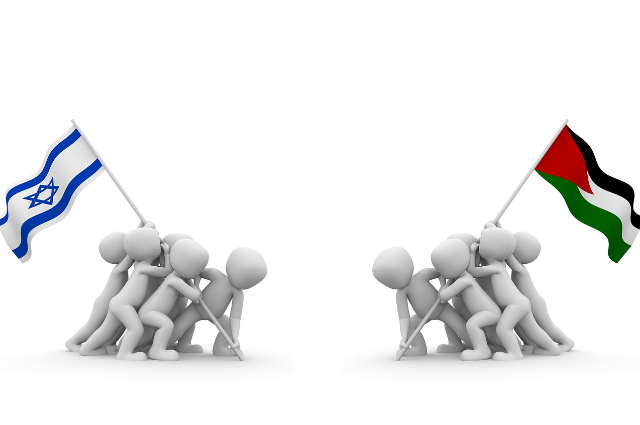
Image by Tumisu from Pixabay
Introduction
In the early hours of the 7th of October, a sudden and intense conflict erupted between Israel and Palestine, marking one of the most devastating escalations in recent history. While most Israelis were asleep, thousands of rockets were fired, shattering the peace and causing widespread destruction. The situation quickly escalated into a full-scale war, reminiscent of the Yom Kippur War half a century ago. This article delves into the intricate details of this recent surge in violence, providing a comprehensive understanding of the events, geopolitical responses, and the historical context of the Israel-Palestine conflict.
The Unprecedented Barrage of Rockets
Reports from the Israeli Defence Forces suggested a barrage of 2,200 rockets, while the Hamas group claimed responsibility for launching as many as 5,000. Despite Israel's advanced Iron Dome defence system, which has previously proven effective in intercepting incoming rockets, this onslaught overwhelmed the defences, resulting in significant casualties and damages. This abrupt and massive rocket attack was a wake-up call for Israel, as the Iron Dome system, considered one of the best air defence systems globally, failed to protect against this scale of the assault.
The Multi-Pronged Assault
The multifaceted attack orchestrated by Hamas included assaults from land, sea, and air. Palestinian militants breached the Israel-Gaza border, infiltrating Israeli territory through various means, including the use of bulldozers, motorcycles, and motor-powered hang gliders. In addition, Hamas also attacked Israel from the sea using speedboats. These coordinated and diverse methods of attack showcased the determination of the Hamas group to carry out this large-scale offensive.
Historical Parallels and the Yom Kippur War
This surprise attack is the biggest in the last few decades, resembling the Yom Kippur War of 1973, when Egypt and Syria launched a similar surprise attack on Israel. Afterward, a full-scale war known as the Yom Kippur War ensued. The current situation is no less than a full-scale war, with the added complexity of historical tensions and grievances.
Geopolitical Responses
Geopolitically, the reactions to this conflict have been varied. While countries like the United States, the European Union, and India have shown solidarity with Israel's right to defend itself, others, such as Iran, have backed the Palestinian cause, portraying the attack as an act of self-defense. The conflict has underscored the deep-rooted divisions and differing geopolitical stances, illustrating the complexities of international diplomacy in the Middle East.
Mossad's Intelligence Failure
The failure of Israel's renowned intelligence agency, Mossad, to prevent the massive rocket buildup in Gaza has raised serious questions about the country's security infrastructure. With sophisticated surveillance systems and a history of targeted intelligence operations, the agency's failure to anticipate this large-scale assault has sparked national criticism and a comprehensive investigation. Mossad is considered one of the most powerful intelligence agencies globally, with informants in Palestinian military groups and a history of precise, timed assassinations of major military leaders. The apparent intelligence failure in this case raises significant concerns.
The Human Toll and the Call for Compassion
Critically, amidst the current surge in violence, it is essential to remain mindful of the human toll and suffering experienced by civilians on both sides. War-mongering rhetoric and extremist perspectives that seek the eradication of either side only perpetuate further violence and suffering. As global citizens, it is crucial to advocate for peace and empathise with the ordinary families living in the shadow of conflict, regardless of their nationality or ethnicity.
Efforts to Minimise Civilian Casualties
While efforts have been made to minimise civilian casualties, the airstrikes and military offensives have resulted in the loss of innocent lives and the destruction of infrastructure. Calls for long-term peace and a sustainable resolution to the conflict echo worldwide, emphasising the need for a comprehensive understanding of the historical context and grievances that underpin this enduring struggle.
The Quest for Lasting Peace
The hope for lasting peace in the region remains alive, but the current situation indicates that the path to reconciliation may be arduous and protracted. Understanding the complexities and historical background of the Israel-Palestine conflict is essential for engaging in meaningful dialogue and fostering a climate of understanding and compassion.
Conclusion
As the international community continues to grapple with this ongoing crisis, it is imperative to advocate for a diplomatic solution that respects the rights and aspirations of both Israelis and Palestinians, ultimately paving the way for peaceful coexistence and a stable future for all. The recent surge in violence serves as a stark reminder of the urgent need for a comprehensive and lasting solution to the Israel-Palestine conflict, one that addresses historical grievances while striving for peaceful coexistence in the region.
